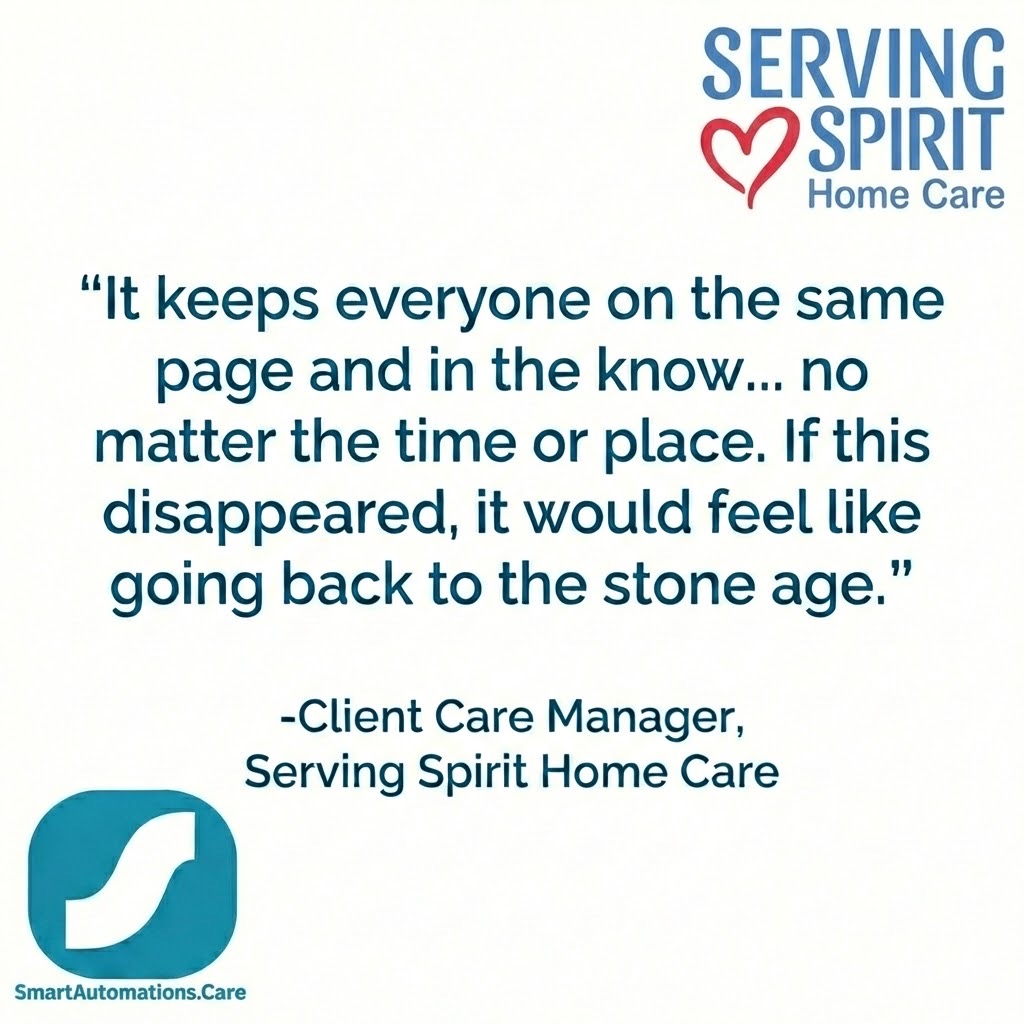Most businesses don’t lose money because of one big mistake. They lose it in small, invisible ways that stack up day after day.
The phones are where it happens most. Calls come in constantly and every one of those calls creates work. Some of that work is valuable. But a lot of it is repetitive, manual, and avoidable.
It doesn’t show up on reports or have a line in QuickBooks, but it quietly eats away at your margins every single day.
A Call That Costs More Than You Think
Picture this: a caregiver calls off for their shift. The person answering the phone jots down a note on a scrap of paper and gets that documentation into the system at a later date. Then another person spends twenty minutes calling around for coverage. What looks like a simple phone call just burned 30 minutes of staff time. Multiply that by ten call offs in a week, and you’ve lost a full workday.
Now imagine a family member calling about services for their mom. They share their name, number, and a few details. The person answering promises to pass it along. But then the office gets hit with another issue and the intake details go undocumented. By the time someone remembers, the information is fuzzy or missing entirely. When follow up finally happens, the phone number might be wrong. Or worse, the family has already chosen another agency.
That’s not just invisible work. That’s lost revenue.
Why It Feels Normal
The reason this kind of work slips through the cracks is simple: it doesn’t feel broken at the moment. Answer the phone. Write it down. Pass it along. But every extra handoff, every time the same information is re entered, and every reminder note piles up into hours of wasted time. It’s death by a thousand cuts. And because it feels like part of the job, most businesses never measure it.
Invisible work shows up when the same information gets written down in multiple places, staff are constantly chasing each other for updates, clients or caregivers repeat themselves, and follow ups slip through the cracks more often than anyone wants to admit. If this sounds familiar, invisible work is already eating at your margins.
A Smarter Way Forward
Fixing invisible work isn’t about hiring more people. It’s about tightening the way your systems work together so nothing has to be done twice. The shift starts by capturing information once and letting it flow everywhere it needs to go. A caregiver call off, a schedule change, or a new inquiry from a family member shouldn’t have to pass through three sets of hands. It should land directly in your system where the right people can act on it.
It also means removing the reliance on memory. If someone has to remember to update the schedule later or pass along a note after lunch, you’ve already built in a failure point. Documentation has to happen immediately and when you notice a step that always happens the same way, that’s a sign it can be automated.
When businesses make this shift, they don’t just save time, they see results across the whole operation. Leads get called back faster, which means more clients. Staff stress levels go down because they’re not constantly chasing details. And businesses are able to grow without adding more overhead, because their team’s time is used more efficiently. In just 1,000 calls, businesses that implement a solution like SmartAutomations.Care can eliminate invisible work to save more than 50 hours of staff time and increase documentation and data exponentially.
Your Phones Are the Engine
At the end of the day, your phones aren’t just a way to connect with clients and caregivers. They’re the engine of your business. If you don’t get them right, you’ll continue bleeding money through invisible work. But when you capture everything once, stop relying on memory, and take repetitive steps off your team’s plate, those wasted hours disappear and your margins start to grow.
At SmartAutomations.Care, we built our platform around solving this problem. The result is simple: fewer things fall through the cracks, your team gets time back, and your phones truly become the lifeline of your business.
If invisible work is eating at your margins, we can help you stop it.

.avif)


